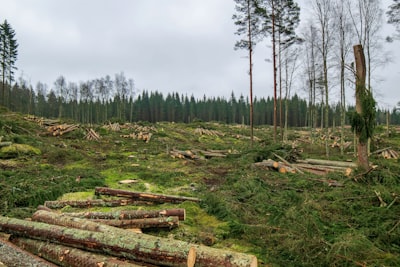Overview
The European Union Deforestation Regulation (EUDR) is a legislative framework adopted by the European Union (EU) aiming to reduce global deforestation and forest degradation linked to the EU’s consumption of certain commodities. The regulation mandates due diligence requirements for companies importing or placing specific commodities on the EU market, including palm oil, soy, cattle, coffee, cocoa, timber, and rubber, as well as products derived from these commodities.
Background and Purpose
Deforestation is a major driver of biodiversity loss and accounts for a significant share of global greenhouse gas emissions. The EU is a notable importer of products associated with high deforestation risk, especially palm oil, soy, and beef. The EUDR seeks to ensure that commodities placed on the EU market do not contribute to deforestation or forest degradation, directly supporting international commitments such as the Paris Agreement and the EU Green Deal.
Key Provisions
- Scope: The Regulation applies to both EU and non-EU companies supplying or importing relevant commodities and derived products.
- Due Diligence: Companies must implement a due diligence system to prove that products are:
- Deforestation-free (produced on land not subject to deforestation after December 31, 2020)
- Legally produced according to the relevant country of production
- Traceability: Firms must provide geolocation data to trace commodities to the land where they were grown or raised.
- Reporting: Regular reporting to competent national authorities is required, allowing regulators to monitor compliance.
- Penalties: Non-compliance can result in fines, confiscation of goods, or exclusion from the EU market.
Implications for Producers and Traders
Major palm oil-producing countries such as Indonesia and Malaysia—which together account for 85% of global production—face new compliance challenges and potential trade barriers. Traders and importers must adapt supply chains for greater transparency and sustainability, potentially incurring higher costs.
Implementation Timeline
The EUDR was adopted in 2023 and will be fully enforced starting December 30, 2024. Companies are expected to adapt systems, auditing, and reporting protocols ahead of this deadline.
Criticisms and Challenges
The regulation has been met with concerns from major producer countries about its impact on farmers, its feasibility, and possible discrimination against smallholders. Critics argue that the costs and technical barriers may disproportionately affect small-scale producers, while environmental advocates stress the importance of robust enforcement for global climate and biodiversity goals.
Related International Legislation
The EUDR is part of broader international efforts to combat deforestation, such as the UK Environment Act (Deforestation Provisions) and the U.S. FOREST Act. Coordination among jurisdictions remains a subject of ongoing discussion.
Conclusion
The European Union Deforestation Regulation represents a significant policy step towards reducing the environmental impact associated with global commodity supply chains. By targeting deforestation-linked imports, the EUDR aims to leverage the EU’s market power to drive more sustainable land-use practices worldwide.

Comments
No comments yet. Be the first to comment!